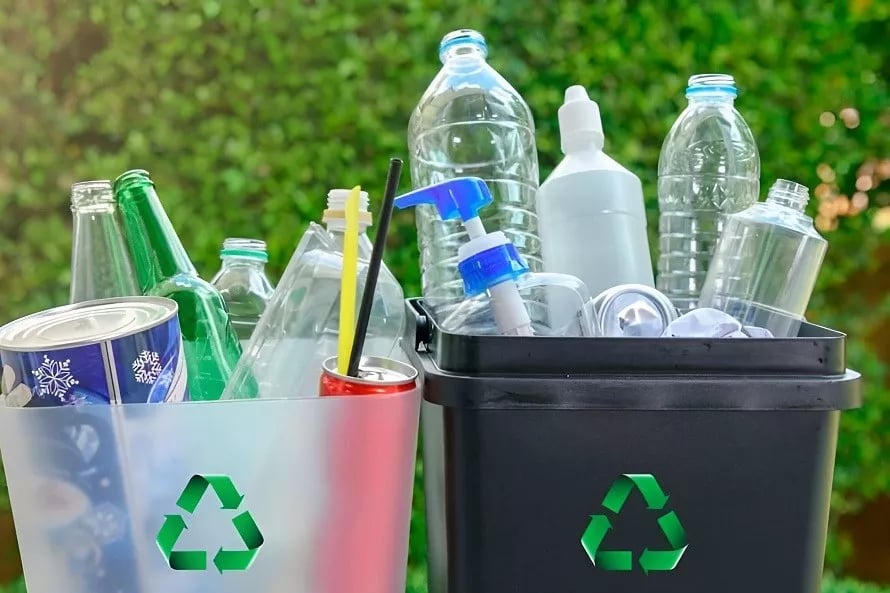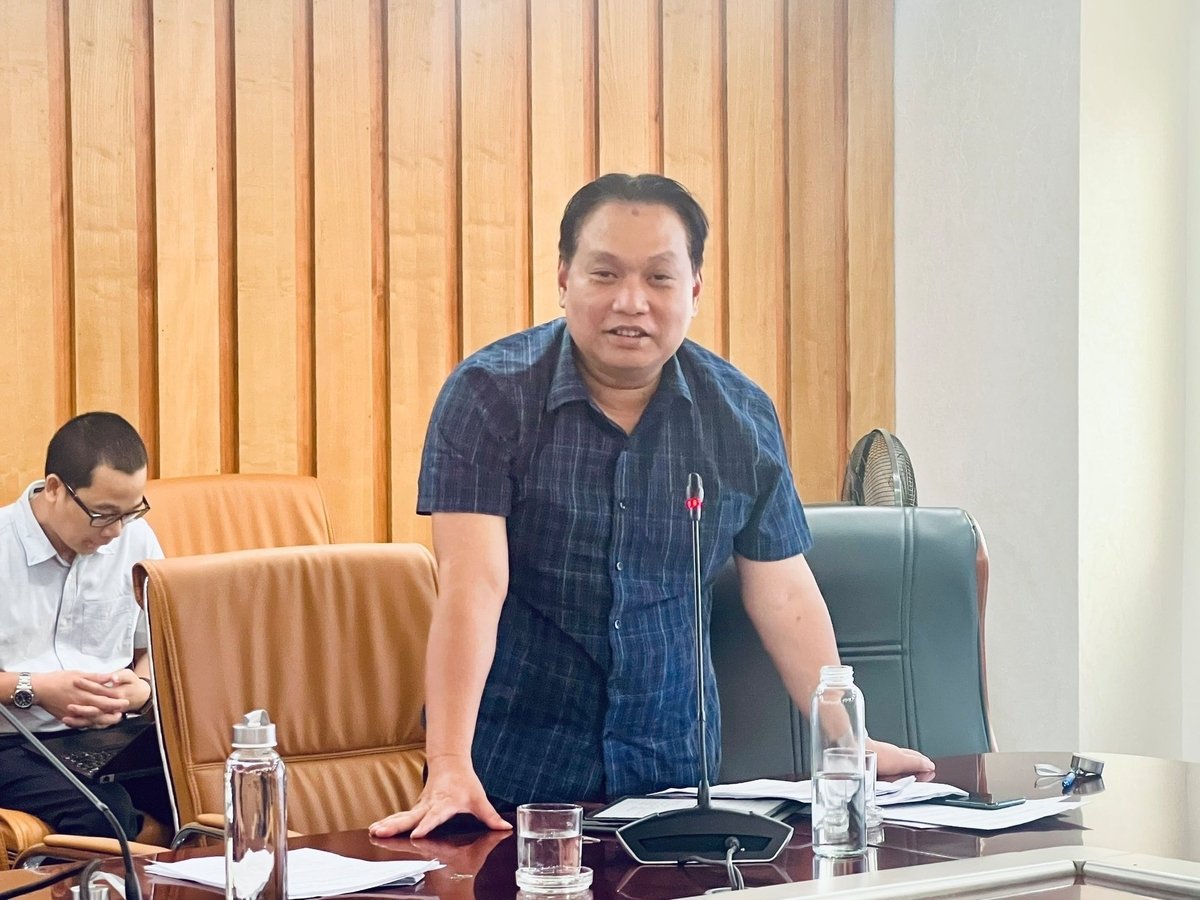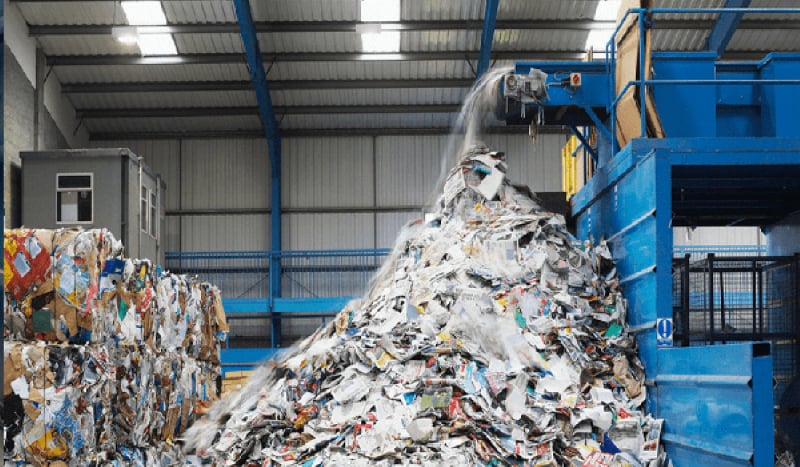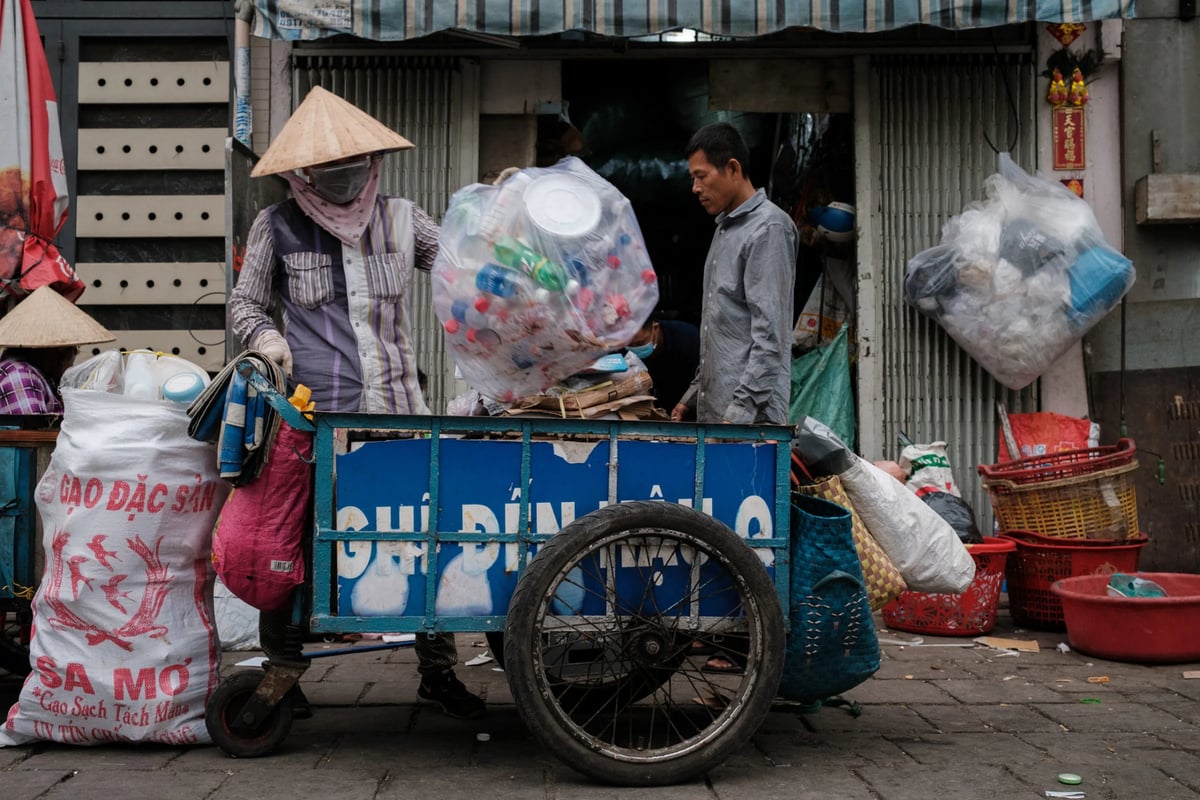May 18, 2025 | 08:40 GMT +7
May 18, 2025 | 08:40 GMT +7
Hotline: 0913.378.918
May 18, 2025 | 08:40 GMT +7
Hotline: 0913.378.918
The Ministry of Agriculture and Environment (MAE) is currently drafting a decree on Extended Producer Responsibility (EPR), specifically regulating the recycling responsibility for products, packaging, and waste collection and treatment by producers and importers. This decree complements the overall EPR regulations stipulated in Articles 54 and 55 of the 2020 Environmental Protection Law.

The issuance of a separate decree on EPR demonstrates Vietnam's determination to establish a modern waste management mechanism closely linked to the circular economy development strategy.
According to Mr. Nguyen Hung Thinh, Deputy Director General of the Department of Environment (MAE) and a representative of the drafting committee, EPR is a new policy with a broad regulatory scope that involves various stakeholder groups such as manufacturers, importers, and recycling enterprises.
However, in practice, many businesses still face challenges in accessing and fully understanding EPR due to the lack of consistency in the current legal framework. At present, EPR-related content is embedded within general environmental decrees, such as Decree No. 08/2022/ND-CP and Decree No. 05/2025/ND-CP, which disperse the relevant regulations, making them difficult to reference and inconsistently implemented.
In response to these challenges, the development of a separate decree fully dedicated to EPR is both necessary and reasonable. By consolidating all EPR provisions into an independent legal document, this effort not only addresses existing shortcomings but also systematizes all relevant regulations in a focused, consistent, and transparent manner. This will facilitate businesses in referencing and fulfilling their responsibilities, and assist government agencies in providing guidance, managing, and monitoring EPR implementation.

Mr. Nguyen Hung Thinh, Deputy Director General of the Department of Environment (MAE) stated that developing a separate Decree with comprehensive regulations on EPR is both necessary and appropriate. Photo: Tong Minh.
At the same time, developing a separate Decree also facilitates the flexible adjustment of regulations in the future, when necessary. This is especially important in the context of Vietnam's gradual shift in its growth model toward a circular economy, in which EPR serves as a central and guiding tool in the transition.
Mr. Nguyen Hung Thinh stated that when drafting the Decree on EPR, it is essential to ensure that all regulations are clear and feasible. The management and disbursement of financial support must be transparent, avoiding the creation of "give-and-take" mechanisms or administrative red tape, and preventing waste of resources.
Accordingly, the draft Decree inherits existing regulations from Decree No. 08/2022/ND-CP, as amended and supplemented by Decree No. 05/2025/ND-CP. It includes detailed provisions on supporting the recycling of products and packaging and the collection and treatment of waste. It also involves technical revisions to consolidate and unify all content into a standalone document.
The Decree is expected to specify which entities are required to implement EPR and provide an implementation roadmap. It will also identify certain groups eligible for exemption and define mandatory recycling rates and specifications.
Regarding the method of fulfilling recycling obligations, producers and importers may choose one of two options: (i) Organize recycling themselves, which includes: directly performing the recycling; hiring a recycling service provider; authorizing an intermediary organization to arrange recycling; or a combination of these methods; (ii) Contribute financially to the Vietnam Environmental Protection Fund in cases where they do not organize recycling themselves.
The draft Decree outlines the applicable subjects, contribution rates, deadlines, and payment methods for financial contributions supporting waste treatment activities. It also stipulates how these funds will be used to support the recycling of products and packaging and waste treatment activities.
Disbursement of recycling support funds will be based on the volume of products and packaging actually recycled, carried out by qualified organizations/enterprises. Provincial-level People’s Committees are eligible to receive support for waste treatment efforts, with support levels determined by local needs and implementation capacity.
“The MAE’s stance is to encourage businesses to organize recycling activities rather than simply making financial contributions. The process of contributing funds and how these funds are used must be completely transparent,” emphasized Mr. Nguyen Hung Thinh.
In discussing these regulations, Mr. Hua Phu Doan, Standing Vice Chairman of the Vietnam Waste Recycling Association, emphasized that when selecting units to participate in waste recycling, there must be clear and specific criteria. Among these, the most important factors are recycling capacity and technology. “We cannot allow outdated recycling technologies to be selected just because of their lower cost,” Mr. Doan stated.

Outdated recycling technologies should not be selected for recycling activities solely because of their low cost.
Mr. Doan also recommended that administrative procedures avoid the "ask-and-give" mechanism and the equal distribution approach. Financial contributions made by enterprises to support recycling activities must be specifically and closely monitored.
“In implementing recycling activities, digitalization and full transparency must be ensured from the outset via the official electronic portal. This will allow the public to clearly see how applications are processed, how recycling units operate, and how the financial flows are managed. Only then can producers truly see that their responsibilities are being implemented seriously and thoroughly,” Mr. Doan emphasized.
Ms. Chu Thi Kim Thanh, Operation Director of Packaging Recycling Organization Vietnam (PRO), raised a concern regarding recycling units' commitments when receiving financial support. She emphasized the need for a penalty mechanism in cases where these units fail to fulfill the committed volume of recyclable waste.

An informal waste worker piles recyclable plastic bottles onto her cart in southern Vietnam’s Ho Chi Minh City. Photo: Jack Ross.
The draft decree proposes several provisions to provide financial support to localities for organizing waste treatment activities. Representatives from the Environmental Protection Sub-Departments of Ho Chi Minh City and Da Nang both recommended that the central government issue detailed guidelines for local authorities on implementing waste treatment to ensure that the financial support is used effectively and in compliance with legal regulations.
Translated by Kieu Chi

(VAN) Hue City rigorously enforces regulations regarding marine fishing and resource exploitation, with a particular emphasis on the monitoring of fishing vessels to prevent illegal, unreported, and unregulated (IUU) fishing.

(VAN) Hanoi People's Committee has issued a plan on reducing greenhouse gas emissions in the waste management sector with 2030 vision.

(VAN) Vietnam's draft amendment to Decree No. 156 proposes a mechanism for medicinal herb farming under forest canopies, linking economic development to population retention and the sustainable protection and development of forests.

(VAN) In reality, many craft village models combined with tourism in Son La have proven effective, bringing significant economic benefits to rural communities.

(VAN) The international conference titled Carbon Market: International experiences and recommendations for Vietnam was successfully held recently in Ho Chi Minh City.

(VAN) According to the Project on rearranging provincial and communal administrative units, in 2025, the country will have 34 provinces/cities, 3,321 communes, wards, and special zones, and no district-level organization.